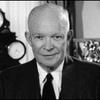William Hartung appears in the following:
End of War: The Military Industrial Complex
Friday, April 06, 2012
William Hartung, director of the Arms and Security Project at the Center for International Policy and author of Prophets of War: Lockheed Martin and the Making of The Military-Industrial Complex, and Fred Kaplan, "War Stories" columnist for Slate and author of 1959: The Year Everything Changed, discuss the military industrial complex and whether cutting corporate influence could stop wars.
Fifty Years of the Military Industrial Complex
Monday, January 17, 2011
Today is the 50th anniversary of President Eisenhower’s farewell speech in which he warned, "In the councils of government, we must guard against the acquisition of unwarrented influence, whether sought or unsought, by the military industrial complex." But what was the military industrial complex initially? And what has it become over time?
Lockheed Martin and the Military-Industrial Complex
Thursday, January 06, 2011
January 17th marks the 50th anniversary of President Dwight Eisenhower’s famous speech on the military-industrial complex. William Hartung, director of the New America Foundation’s Arms and Security Initiative, discusses the history of Lockheed Martin—the nation's largest weapons contractor. His book Prophets of War traces the company's rise from military aircraft manufacturer in WWI, to a major supplier of fighters and bombers for the Allies in WWII, to corporate behemoth with a major role in setting American foreign policy.
Backstory: U.S. Weapons Sales
Thursday, September 23, 2010
The United States Congress is poised to approve a major weapons sale to Saudi Arabia valued at over $60 billion, making it the largest arms sale in history. On today’s Backstory segment, William Hartung, director of the Arms and Security Initiative at the New America Foundation, examines the deal, its political implications, and how the United States came to be the largest weapons dealer in the world.

